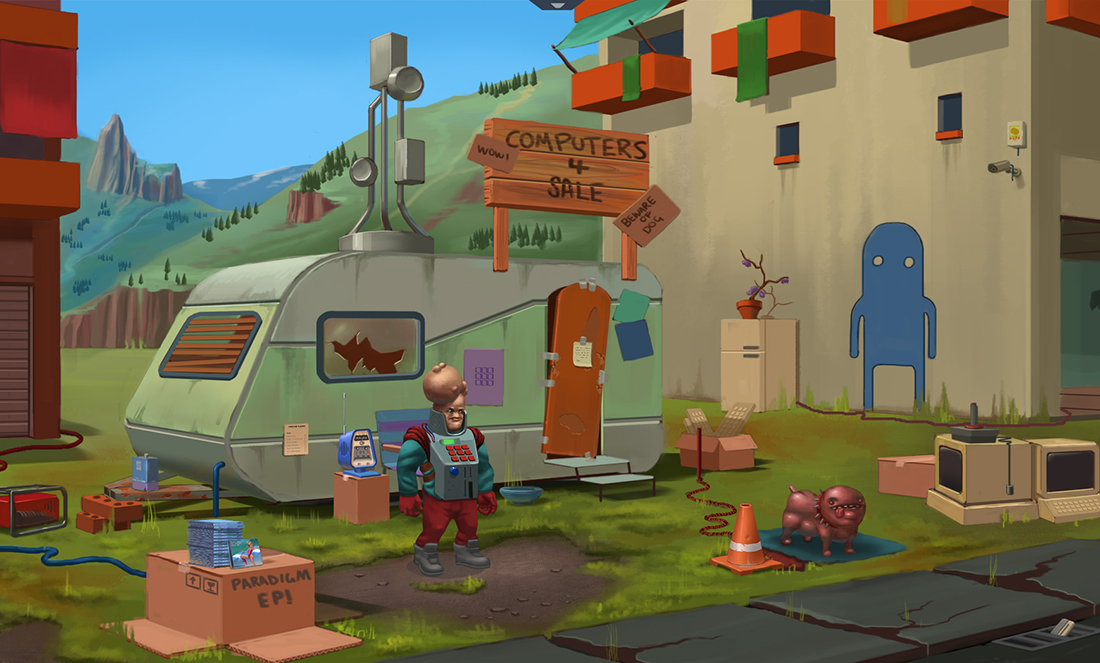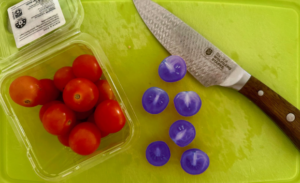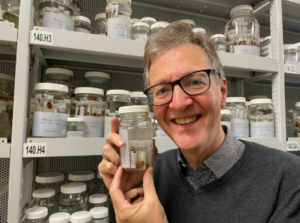This is the hilarious and surreal premise of Paradigm, a point and click adventure game set in a 1980s post-Soviet, post-apocalyptic world. While the title is receiving national and international acclaim, Paradigm was created right here in WA.
Jacob Janerka is quite literally the creative powerhouse behind Paradigm. A one-man studio, Jacob did all the voice acting, art, programming and even the marketing.
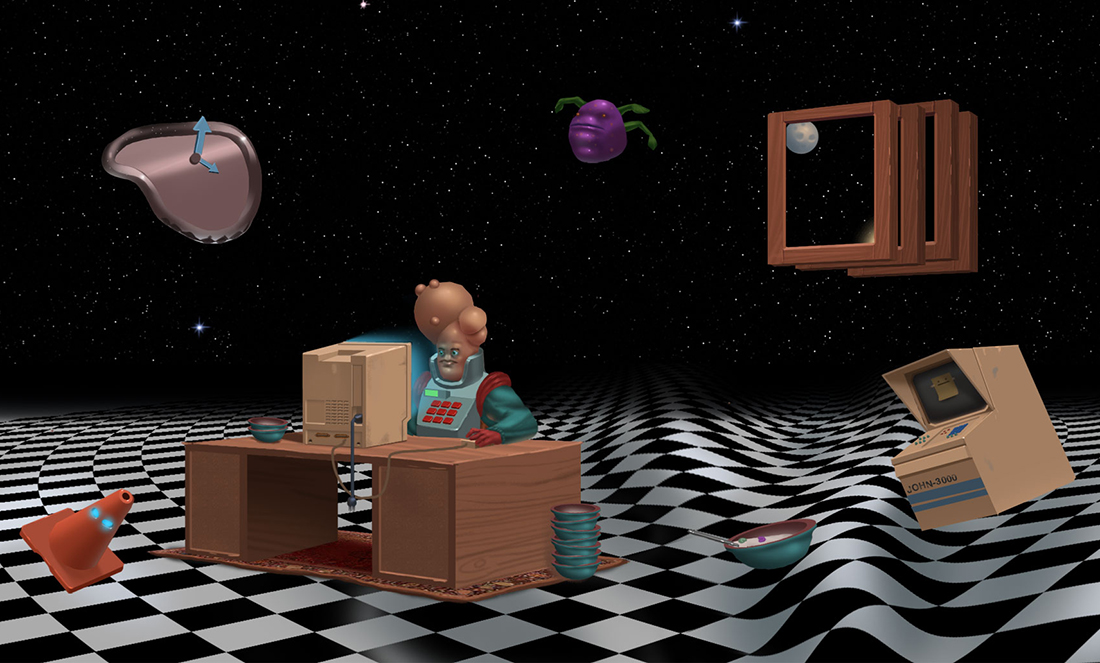
Inspiration
I asked Jacob where the inspiration came from for the game.
“People expect that I’d have a creative, wacky story … but the story just came from stuff I was watching at the time—Gattaca, 2001: A Space Odyssey. I was really into dystopian fiction. Then 2 years later, I went to Europe, and I went to my friend’s home country of Montenegro—similar to Poland where my parents came from. It was really interesting how the Soviet architecture contrasted with the modern stuff as well as the beautiful landscapes. When I was brainstorming for [Paradigm] and I wanted a unique setting, I thought of that. And the Russian accent is the only one I can do.”
From the beginning, the game was kind of a big deal. Jacob not only successfully crowdfunded nearly $37,000 ($14,000 over his initial target), an early alpha of the game was featured on Pewdiepie’s YouTube channel. For the uninitiated, Pewdiepie is essentially the Oprah’s Book Club of indie video games. Don’t believe me? At the time of writing, the video featuring Paradigm was just shy of 10 million views.
And the game is getting all the nods from all the right people (for you gamers: 86 on Metacritic and 98% on Steam).
A big win over east
But perhaps most importantly for WA and our growing local games industry, Paradigm, along with Blacklab Games’ Battlestar Galactica: Deadlock (which I’ve written about previously), just cleaned up in Melbourne.
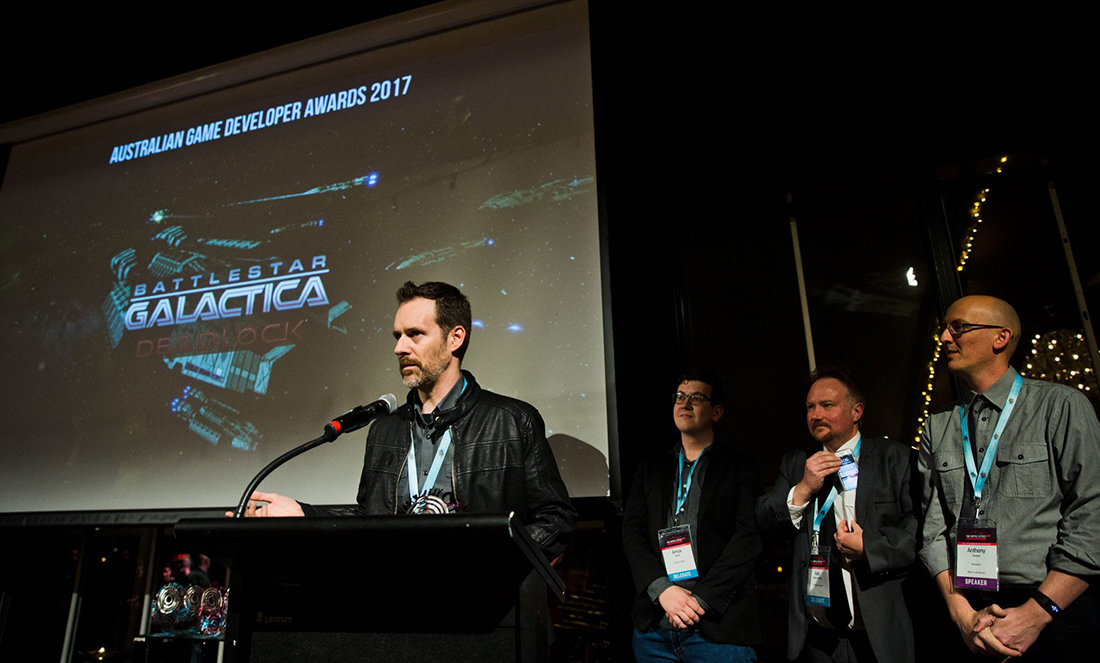
Both of these WA games were honoured at the Australian Game Developer Awards, which are given out during Melbourne International Games Week (MIGW). It is the first time ever that not only one, but two WA-made games were honoured at these awards.
For Jacob, it’s a great time to be making games in WA. Compared to a just a few years ago, he told me, “There’s a lot more people who are more passionate now about making games in Perth. There’s so many game devs you talk to locally doing cool shit.”
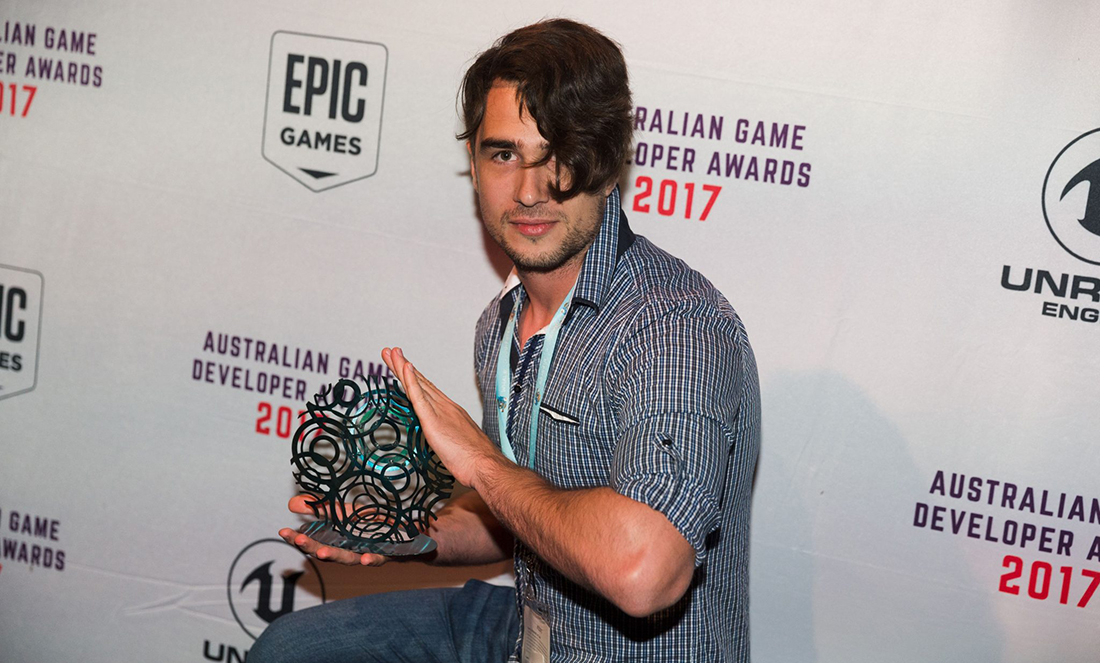
Games as art
And what is Jacob really excited about? Art games—people making games for the sake of it rather than for profit. “They are an unexplored medium that is unappreciated,” he told me. “[People making art games] doing what artists were doing—saying ‘Ah, realism sucks’ and pushing the boundaries. And then it influences everything else, movies, magazines.”
In fact, as Jacob told me, we’re about to enter a time where games come of age, like other art forms of the past. “It’s similar to when movies were becoming their own kind of medium. It just kind of exploded in the 50s. How old are video games? It was 30, 40 years [ago] when Pong came out. There’s so much we haven’t found out yet.”



